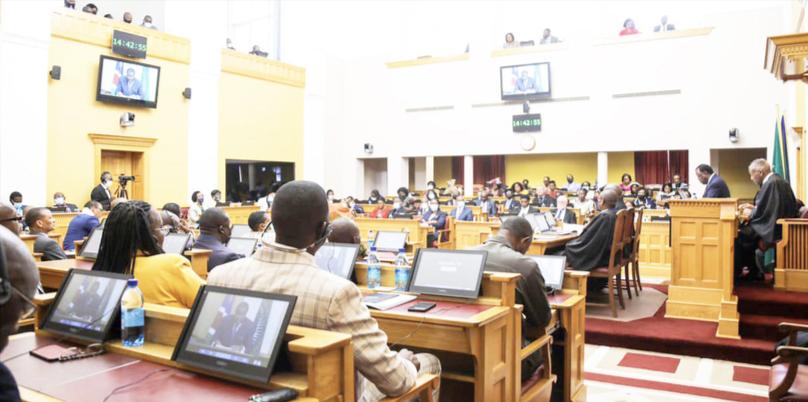Africa-Press – Namibia. NATIONAL Council chairperson and member of parliament (MP) Lukas Sinimbo says there is a need to empower both parliamentary staff and MPs to cope with new ways of conducting parliamentary business.
Sinimbo was yesterday speaking at the Society of Clerks at the Table (Socatt) professional development seminar in Windhoek.
“We have observed and learnt that parliamentary operations need urgent transformation to move away from the traditional way of only conducting parliamentary business on a face-to-to face basis, and to accommodate new ways of doing things without neglecting the core functions of parliaments, which are representation, law making, and oversight over the executive,” he said.
Sinimbo said there is a need for parliaments to adopt adaptive and innovative capacity-building approaches for staff, as well as human resource management practices that will respond positively to the envisaged transformation and re-engineering of parliamentary administration and chamber business.
“As parliamentary officials, it is important to acknowledge that even the most qualified employee will from time to time or at one point require a certain level of on-the-job training and professional development, or continued training and education of an individual in regards to his or her career,” he said.
Sinimbo said the goal of professional development is to keep employees up to date on current trends, as well as to develop new skills for the purpose of contributing to the success of the workplace and skills to help parliamentarians become experts in their fields.
According to the 2007 National Democratic Institute (2007), legislators often face constraints in fulfilling their roles and responsibilities, including weak individual and institutional capacity, little independence from more powerful executives and ruling political parties, and limited political will.
“Because of capacity constraints, and a lack of strong analytical backgrounds, high-quality policy analysis is sometimes difficult.
“It is my profound belief that at the end of this seminar, participants will be able to identify strengths and weaknesses in our parliamentary service delivery,” he said.
Sinimbo urged parliamentarians to keep improving on strengths, and to work on eliminating weaknesses.
In June, some analysts said parliamentarians are “sleeping on the job” as the National Assembly has only managed to clear eight out of an expected 20 bills in the past two years.
Political analyst Ndumba Kamwanyah says members of parliament lack researching skills.
“I think they lack the research capacity to make sure they are in touch with our own constituencies. And this is not just Swapo MPs,” he says.
“I think we are witnessing a decline in the depth of intellectual and analytical ability, and in the capacity of our MPs to really connect the dots of why people are voting for them,” he says.
Analyst Rui Tyitende says most MPs appear to be oblivious of their primary tasks as lawmakers.
“They are supposed to enact laws that will have a tangible impact on improving people’s quality of life and their immediate living environment,” he says.
He labels MPs as salary collectors, adding that some have not uttered a word, or made any substantive contributions to matters of national importance.
“However, even MPs from the opposition who have serious motions to table are stifled.
“How many bills have been passed over the last two years that seek to address the plight of the most vulnerable in society?” he asks.
Tyitende says the pandemic is not a good enough reason for the lack of action.
“Public health regulations have been relaxed, and the parliament has the means to deliberate virtually and keep the Namibian populace engaged on bills and motions,” he says.
The analyst advises parliamentarians to keep themselves updated on current affairs.
“Ignorance can be deadly. As Tshilidzi Marwala profoundly argued: Those who do not read should not lead,” he says.
For More News And Analysis About Namibia Follow Africa-Press






